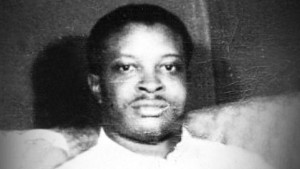The DOJ’s Civil Rights Cold Case Division isn’t working. It’s time to open up the investigations.
 Wharlest Jackson was just like any other husband and father, trying to earn a living to support his family. Transcending the limits facing black men in 1960s Mississippi, Jackson became a factory foreman. But Jackson wanted more, he wanted a more egalitarian future for his children and thus served as the treasurer for the local chapter of the NAACP.
Wharlest Jackson was just like any other husband and father, trying to earn a living to support his family. Transcending the limits facing black men in 1960s Mississippi, Jackson became a factory foreman. But Jackson wanted more, he wanted a more egalitarian future for his children and thus served as the treasurer for the local chapter of the NAACP.
In Mississippi, even two years after the Voting Rights Act passed, this was dangerous. The Silver Dollar Group, which consisted of Klansmen who believed deeply in violence, sought to put an end to any form of black integration and social elevation. On Feb. 27, 1967, in Natchez, Mississippi, Wharlest Jackson was killed by a car bomb many now believe was orchestrated by the Silver Dollar Group.
After his murder, the FBI generated more than 10,000 pages of documents to identify the suspects, but the files were never released and the murderers never charged.
Today, almost 50 years later, the FBI still hasn’t solved the Jackson murder or more than 100 similar cases. If any justice is to be served and closure brought to the victims’ families, the government must “crowdsource” the investigation and allow the public to review the raw case materials. Investigative reporters, local prosecutors and historians are the last, best chance to resolve these crimes.
But right now, that is nearly impossible thanks to archaic laws that restrict the release of case materials. Without reforming this system and providing the public access to these files, Jackson and many other victims will never receive the justice they deserve.
The most important prerequisite to approaching any civil rights case is having the necessary background information, texts and transcripts to use as evidence. To obtain these pieces of text, one must fill out a Freedom of Information Act request, which is a formal request to the federal government for a certain document or group of documents. Though this process may seem straightforward, it is actually extremely inefficient and time-consuming.
For example, the median processing time for large FOIA requests to the FBI is 475 days. In those instances when the FBI sends the documents instead of refusing access altogether, many of the documents are heavily redacted, so that they are virtually useless for research purposes.
This makes it a significant struggle for outsiders to access evidence that could potentially resolve these cold cases.
The Emmett Till Act, passed in 2007 to honor the memory of the young man whose callous murder in 1955 helped ignite the civil rights movement, created the DOJ’s Civil Rights Cold Case Division, which focuses exclusively on solving these civil rights cold cases.
But despite their best efforts, the number of civil rights cold cases resolved by the DOJ and FBI since the Emmett Till Act was passed is still a heart-rending zero. In fact, almost all of the civil rights cold cases that have been resolved in the past 40 years owe that resolution to the efforts of reporters, investigative journalists and local prosecutors.
Both the government’s inaction to resolve these cold cases and the public’s interest in providing justice to the victims of these cases are clear reasons to pass a bill that would facilitate the release of documents related to civil rights cold cases. The bill, which has already been written by an AP Government and Politics class from Hightstown, New Jersey, calls for the creation of an independent review board to assess whether classified documents can be released to the public and whether they truly need redacting. With this expeditious release of documents, attorneys, journalists and reporters who care deeply about the cases would have a substantial amount of evidence to resolve the cases.
Some claim that releasing these civil rights cold case files would endanger the lives of former informants as well as other government officials. However, it is highly unlikely that anyone will be negatively affected from the release of these documents. Most of the cases in question took place over 50 years ago, and many of those involved are dead. The reluctance of the government to release these files is an example of the overclassification that has become a trend in many departments. Because government officials can face serious consequences for failing to classify sensitive materials, it is in their own interest to classify and withhold any material in question, regardless of whether there is any real danger in releasing it.
Those who doubt the viability of the board can be assured that it is not without precedent. The bill was modeled after the John F. Kennedy Assassination Records Collection Act of 1992, which created an independent review board of well-respected historians to release documents related to the Kennedy assassination. The historians continued to balance the public interest against the privacy rights of individuals, but the end result was a collection of material far more transparent and informative than what was previously available to students of President John F. Kennedy’s murder. No harm came to any of the thousands of people whose names were released to the public as part of the JFK Act, in part because government agencies could appeal controversial decisions directly to President Bill Clinton, who could override the board’s decisions. All of these safeguards would be in place if the government passes the Civil Rights Cold Case Records Review Act.
